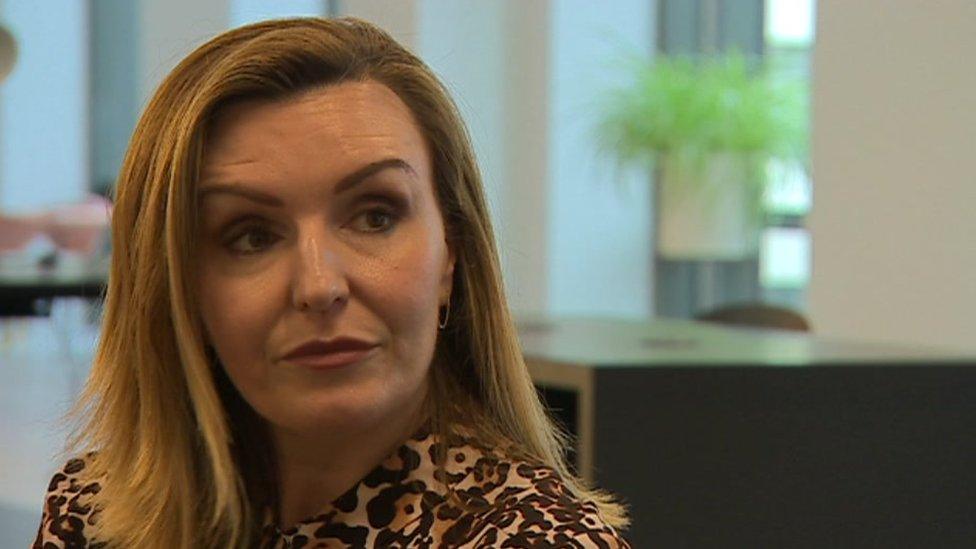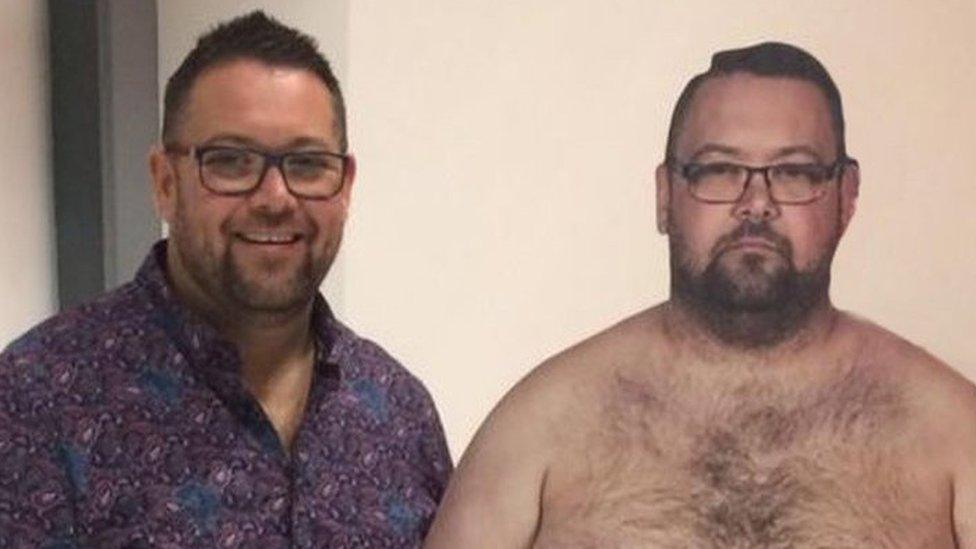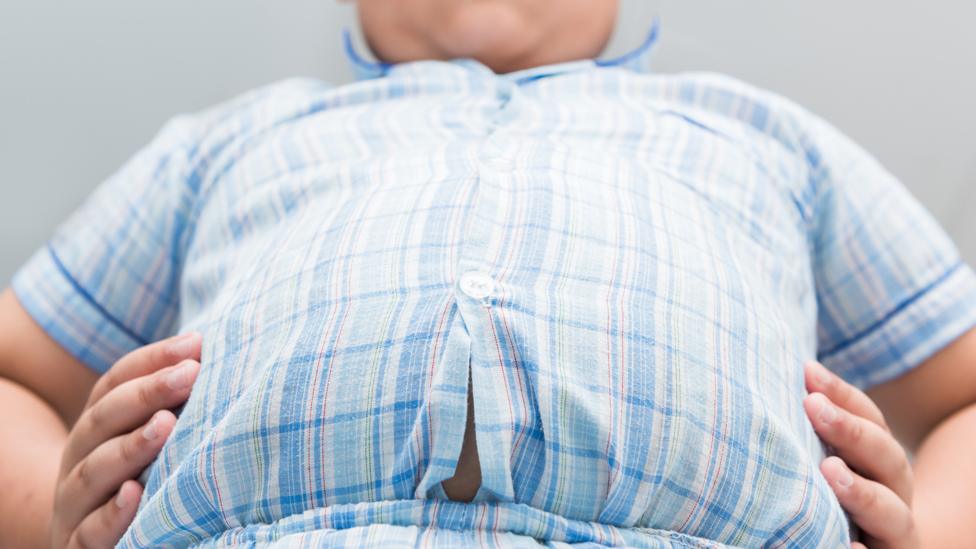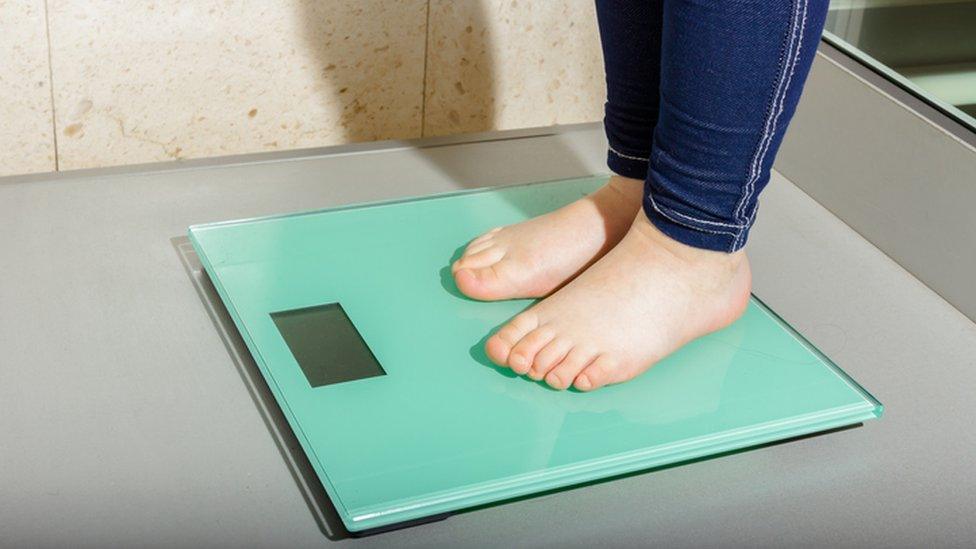Obesity: 'Encourage poorer mums to exercise'
- Published
Claire Sanderson opens up about her depression - and how she has turned to exercise
The editor-in-chief of Women's Health magazine says encouraging mothers from poorer communities to exercise could help tackle "an obesity crisis".
Claire Sanderson grew up in Abercynon in the south Wales valleys and is now part of a UK government taskforce for women's health issues.
She said women from lower socio-economic backgrounds are vital to any future change.
Experts warn obesity is the biggest health risk in Wales.
Some 59% of adults are overweight, with 23% classed as obese, according to the National Survey for Wales 2016-17 and the Welsh Government has launched its first strategy to try to combat the problem.
Ms Sanderson said mothers in particular should be told not to feel bad about keeping fit.
"The key is getting to these women and persuading them it's not selfish to exercise, to put themselves first, because actually if they look after their own health, mental health and physical health, it will have a huge effect on their wider family which as a result will benefit future generations," she said.
"People from the lower socio-economic groups are the hardest to reach by government bodies, or anybody in fact, in terms of getting the message across.
"I'm from the valleys, I couldn't be more proud to be from the valleys, but there is an obesity crisis in Wales, the stats are out there, I see it for myself when I go home."

Claire Sanderson is originally from Abercynon in the Cynon Valley
She believes there are "green shoots" but that people in her position have a responsibility to do more.
"As a valley girl through and through, I would love to be able to use my influence to help the people that I grew up with," she added.
'Deep-rooted paranoia'
The 40-year-old grew up in Abercynon and after attending university in London and a short spell at the Cynon Valley Leader newspaper, she became a graduate trainee and journalist at the Daily Mirror.
More senior roles at Grazia and Look magazines followed before she was headhunted for the role of editor-in-chief at Women's Health, the UK's best-selling health and wellness magazine.
But she took on that job after a period in her life where she was hospitalised with depression.
"What started with crying on the sofa, inexplicably crying, turned into deep-rooted paranoia where I thought everyone was talking about me, to the point where I thought it's just much easier if I kill myself, than carry on with this," she said.
"It's very hard to describe how you feel, because it's not sadness, it's nothingness, which is worse. You're not happy, you're not sad. You're just grey. It's like you're walking around with two weights on your cheeks, stopping you from even smiling."
She spent two periods of time in hospital and after that, realised the importance of exercise in improving her mental health.
"I know I have to prioritise exercise. So I train at least five times a week and some people could judge me and say that's selfish, because you work full time, surely you need to spend time with your kids?
"But for me, I'm a much better Claire, a much better mum and a much better wife if I've exercised, because that is what is keeping my mental health on an even keel."
One of the first things she did as editor-in-chief was to publish an issue dedicated to mental health. Now she speaks publically about her experiences.
"They see it as a comfort and a source of inspiration that someone who seemingly is doing well for themselves professionally and personally, I'm happily married with two kids, can overcome such devastating mental health issues and succeed.
"Because I know from personal experiences when you're caught in the depths of depression you really don't think there will be tomorrow, let alone a next week".
If you are affected by the mental health issues raised in this story, you can click here for more information on accessing support.
- Published17 January 2019

- Published29 August 2017

- Published7 March 2019

- Published5 April 2018
